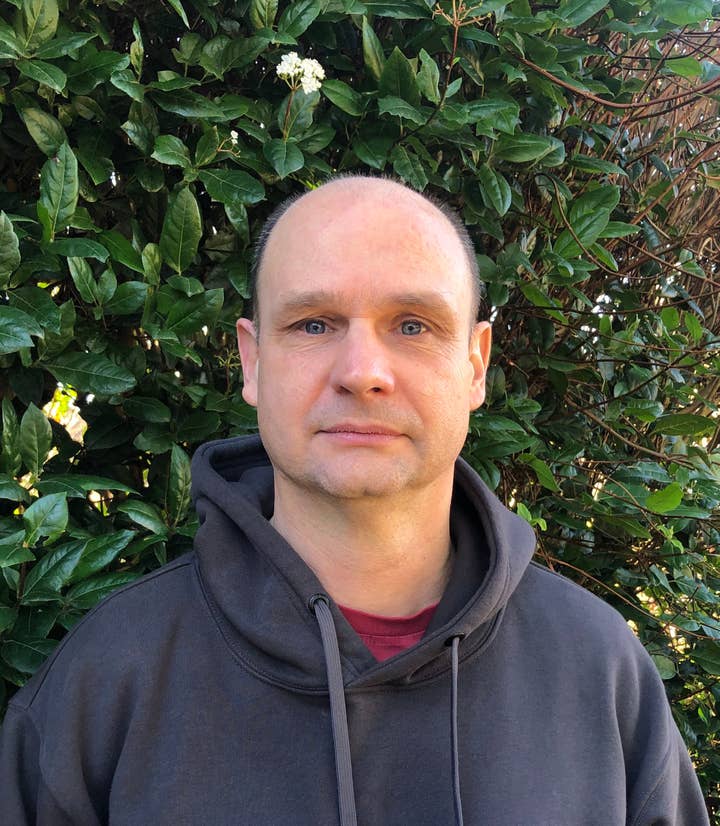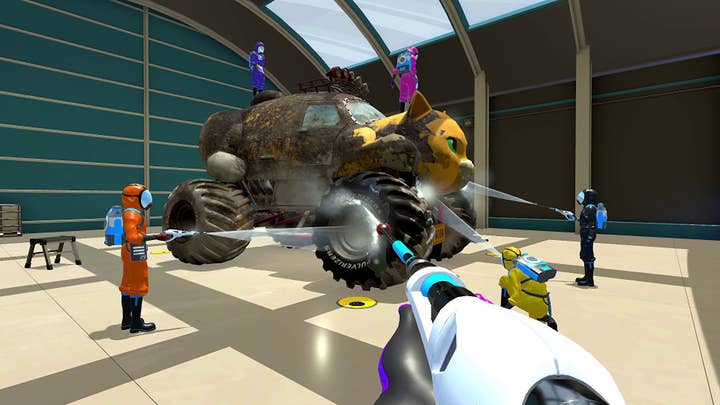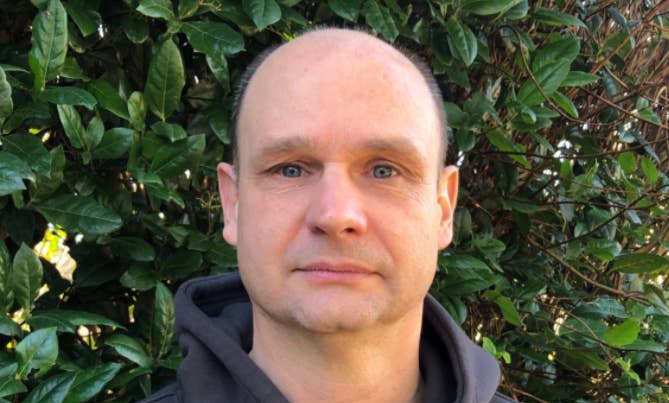Why indie developers should consider hiring a COO
PowerWash Simulator studio Futurlab has hired a chief operating officer in Chris Mehers. We find out why
There's a notion that the job of chief operating officer only exists at the biggest games companies.
EA, Ubisoft, Activision... These companies have a COO. Not indie studios working on one or two games.
And yet the role of COO has become an increasingly vital position for companies of all sizes, particularly for those teams experiencing growth. Futurlab, the team behind PowerWash Simulator, is a prime example. And just last month it named industry veteran Chris Mehers as its first COO.
"It depends on size and trajectory," Mehers explains. "For 18 years, Futurlab didn't need a COO. But they've now got a hit in the making with PowerWash Simulator.
"They're growing. We've gone from 20 to 50 people. So suddenly you've got creative leaders [James Marsden and Kirsty Rigden] who have realised that if this continues, as much as they love the success, their job is going to be running a studio and not making games. He will get pulled away because there's all sorts of really mission critical stuff around people, finance, operations, all the rest of it, which has to happen.

"For James and Kirsty, and I'm sure it's the same for other leaders, you get to a point where the reason you got into the games industry is just a tiny fraction of what you have to do every day. James can continue to add massive value to FuturLab by being hands on at the coalface of creativity, rather than having to run all the backroom stuff... Systems, process, people, those bring challenges that needs someone to look after."
A COO handles key areas as a studio grows
You often hear the idea of bringing in a COO as 'hiring your own boss', although Mehers doesn't really see it that way.
"That has a corporate feel to it," he says. "If you're in an indie, you've got a mission, you've got a game to get out and the focus is often either survival, or dealing with the consequences of success. And, at the moment, for us it's dealing with the consequences of success.
"In a well run business, the job title actually means nearly nothing. It's about the mission. And then it's just about having people you trust. The leadership team has different strengths and weaknesses. And if you're in a room together, the CEO, COO, chief marketing officer -- whatever it is you want to put in there -- it doesn't actually make any difference because you're all contributing to a decision."
A COO is also there to help bring in new people, a situation that's become increasingly challenging in recent years as the number of vacant senior positions continues to rise across the industry.
"For many creative founders, you get to a point where the reason you got into the games industry is just a tiny fraction of what you have to do every day"
"A big challenge around that is trying to create an organisation that is truly welcoming as it scales," Mehers explains. "When you're 20 people, it's incredibly human, the relationships are very strong because you're in the trenches together. But when you get past 30, and then probably when you get past 60, you need to start thinking about the soft tissue of an organisation. And that's made even harder when you've had to go remote because of COVID.
"Part of my focus when I joined was almost an HR role. As a COO you got HR, finance, operations, legal, commercial... it just depends on what's needed at the time. Now we're at the stage I'm looking for a really good HR person, and that part of my role will be given away as soon as I get that person right. And then I'll probably be looking for a really good finance person."
One of the key responsibilities for a COO, particularly a new one coming into a business, is working out what makes a company special and finding a way to maintain it as it expands. Futurlab is an indie developer that is vocal about its anti-crunch approach to games development, and is a big advocate for strong mental health. It has a 'Christmas Tree' design philosophy, where there's the spine of the game (the tree) and all the nice-to-have features (the baubles). If there are issues, rather than crunching, baubles get removed instead.
This is something Mehers has had to learn and build into his approach to growing the studio.
"[When I started] I sat down with some of the juniors and asked them what it was that made them love working here, and one example I was told is that when PowerWash was in development, they were right up against it. There were deadlines to meet, and I imagine financial pressure at that time, too. And James gets everyone's together and goes: 'Right, we're under pressure, but we're not going to crunch so you need to let me know what to take out of the game so we can meet our timelines.' I heard this from the junior employees. So one of the things I really felt I've got to live up to is that culture and trying to maintain that as we grow.
"Part of that initially, which I think is often the case with a startup, is down to the character of the founders. That's just how they are. There are no rules, because it's a company size where you can touch everyone and feel what's going on. But we're getting beyond that scale. So one of the things I did was sit down with James and go: 'Okay, we need to get what's intuitive to you out of your head, not so we can write a rulebook, but so we can really understand what it is we want to keep and how we want to build around that'. We've now got what we think is really nice playbook in terms of how to do that."

Futurlab brought in a COO as the company started to grow exponentially, and in part because Marsden wanted to get back into making games. But Mehers says it will be different elsewhere. In fact, with his previous two COO positions, he was one of the co-founders from the beginning.
Time it right when hiring a COO
What is clear, however, is making sure not to leave it too late. The trick is to bring in a COO just before it becomes essential. Leave it too long, and you might find you have a team that's unhappy because hiring is slow, or HR issues are taking too long to resolve.
"There was a palpable sense of 'thank God he's done that' when James said that Futurlab is getting a COO," says Mehers. "I don't know if there was a palpable sense of 'thank God it's Chris' [laughs]. But there was a sense of it was needed. One analogy someone said was that it felt like 'we were in a Mini doing 90 down the motorway. Everything was shaking and something was going to fall off, but we didn't know what.' Futurlab needed to add capacity.
"But there's walking that tightrope between doing all the right things in terms of building the A-frame for the studio we're going to be, but not putting too much of a financial burden on the business. If you recruit too many senior people too early, then that's going to be an issue because suddenly you've got a cost to bear. At the same time, part of the FuturLab culture is about identifying as many senior roles as possible that we can hire for internally."
A COO works out how to best support the team
Another reason Futurlab needed the COO role was the studio's move to having two projects in the works at the same time.
"You need to really put the person first in a remote studio, more deliberately than you did before"
"That brings its own level of complexity," Mehers says. "We're in transition. We have a small indie structure, one made for 20 people, which is now 50 people and trying to become 65 people. There is a lot of ground that someone like me has to cover. Not just on my own, of course. We've got to enjoy the journey in this industry, and part of that will be getting us from A to B, and hopefully in a better condition from when I started."
The COO role for Futurlab is also about looking after the team better. We are in unprecedented times. There are world issues and changing expectations, all of which companies are having to respond to on a seemingly daily basis.
One of the biggest issue is with the pandemic and how to react to people's differing expectations around that. Futurlab has decided to be a 'remote-first' studio. It's an approach that enables them to recruit from around the world. But it's a decision that brings with it challenges that Mehers has to overcome.
"There are people all over the country that work for Futurlab," he concludes.
"We've started to recruit people from Europe. There's no requirement to ever move to the UK. It's great for people, because they're not restricted to the studios within commuting distance of their hometown anymore. But it almost makes the challenge as an employer even greater, because what is your point of difference? It's no longer your fancy offices, your free coffee and your beers on a Friday night or whatever. You've got to find a whole new suite of ways to connect people. It's ultimately finding ways of creating opportunities for people to socialise. And it's not just, 'Hey, let's all meet up for beer'. You've got to go deeper than that.
"And when it comes to performance issues... your first question has to be: how are you? What's going on? The issue is often the person not the performance. Maybe they've got a sick parent or child. This is stuff that you might become aware of if you're all together in a small office. You need to really put the person first in a remote studio, more deliberately than you did before. In an office all together, some of it would have happened of its own accord to a certain degree. But it doesn't when you're remote, because all you're seeing is this face on a screen.
"If I'm in a stand up everyday and that's my main contact with the rest of the team, maybe I can hold it together for the 20 minutes on a stand up, but I'm not okay afterwards. So how would you go about making sure that everyone is really okay?"

